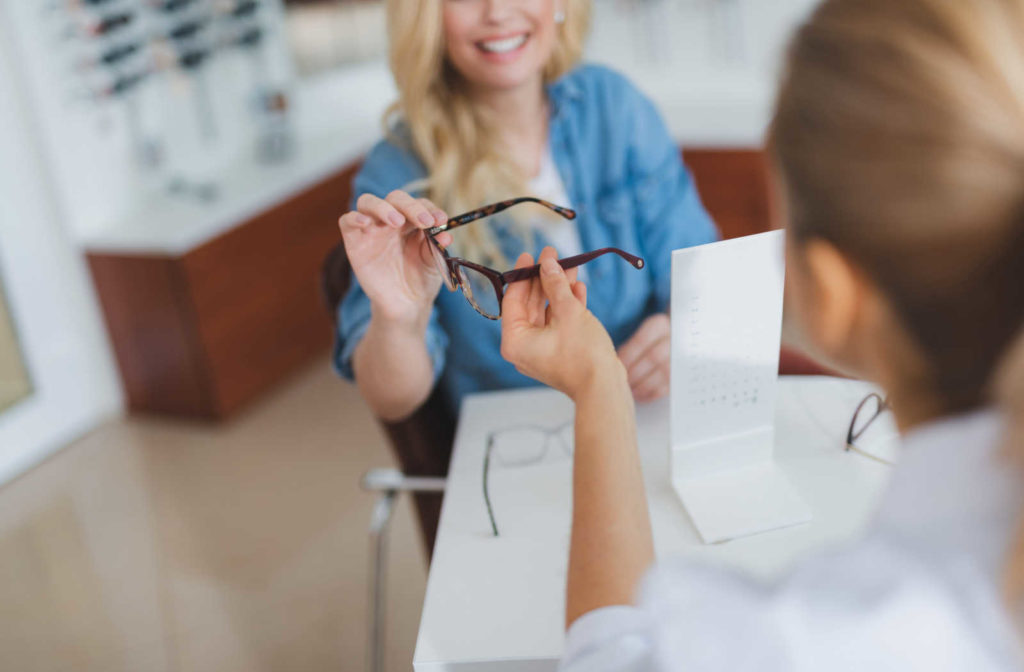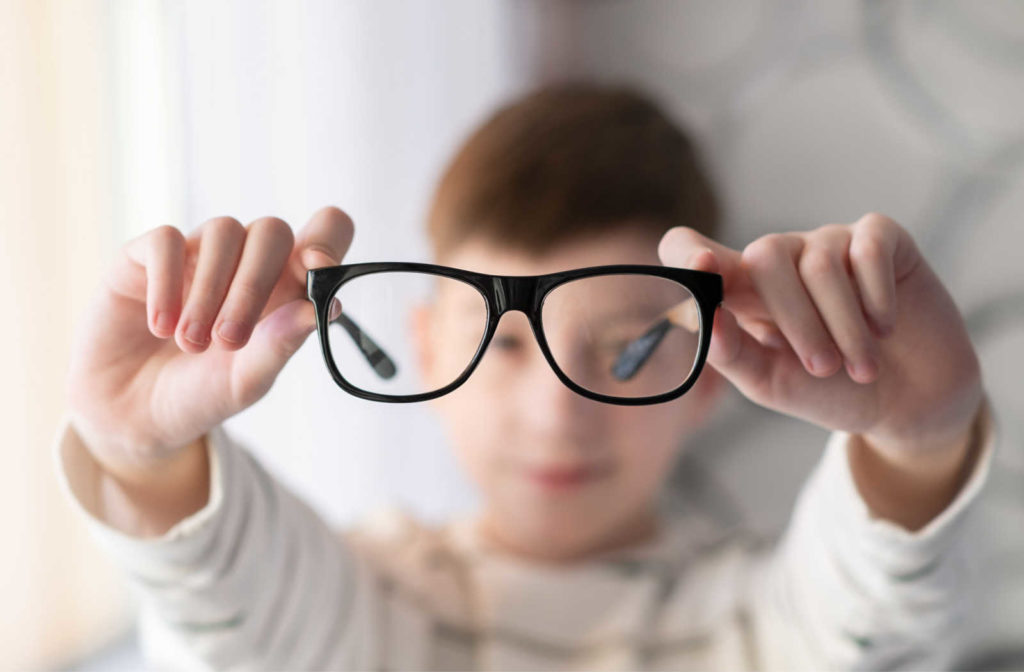Myopia, or nearsightedness, is becoming an increasingly prevalent vision problem across the US. Over 40% of Americans are estimated to have myopia, and this percentage is only likely to rise.
If left untreated, myopia will most often progress and can put you at an increased risk of developing serious and potentially vision-threatening eye conditions. The most effective way to prevent these serious outcomes is by slowing or stopping the progression of myopia.
While myopia cannot be cured or reversed, it can be controlled. Eyeglasses and contact lenses are among the most commonly used treatment options for myopia control. Proven lens options for myopia control include MiSight 1-Day contact lenses and orthokeratology (ortho-k) contact lenses.
If you or your child are noticing vision changes, it’s important to consult with your eye doctor. Early intervention is the best way to preserve vision and maintain eye health for individuals with myopia. Your eye doctor is also a great resource for developing an effective myopia control plan that fits your unique vision and lifestyle needs.
What Is Myopia?
Myopia, commonly known as nearsightedness, is a refractive error that causes distant objects to appear blurry while close objects remain clear. Myopia occurs when your eyeball is too elongated, or your cornea (the clear front surface of your eye) is too curved, causing light to focus in front of your retina instead of on it.
Myopia can develop at any age, but it often begins in childhood and can progress throughout adolescence and into adulthood. It is believed that increased screen time may be a driving factor in the growing prevalence of myopia.
Common signs of myopia include:
- Eye strain
- Headaches
- Squinting to see
- Difficulty focusing on far away objects, such as road signs or the board in a classroom
If left untreated, myopia will most often continue to get worse. Severe cases of myopia are referred to as high myopia. Individuals with high myopia are at an increased risk of developing serious and potentially vision-threatening conditions such as glaucoma, retinal tears, and myopic macular degeneration.
Treatment Options
Myopia control is essential to managing myopia and preventing serious vision loss. Myopia control is especially important for children, as it’s during this developmental stage of life that a person is most likely to undergo rapid myopia progression.
The goal of myopia control is to slow or stop your degree of myopia from increasing. This may be accomplished by preventing your eye from becoming more elongated.
Myopia control options may vary based on availability through your eye doctor and your specific vision needs, but common treatment options include:
- Eyeglasses
- Contact lenses
- Ortho-k
- Atropine eye drops
In some cases, your eye doctor may recommend more than one treatment option for optimal results.

Myopia Control Lenses: Options
Finding the myopia control option that works best for you will depend on your unique vision and eye health needs. Your eye doctor may prescribe glasses or contact lenses as part of your myopia control plan to help correct your vision and prevent your myopia from progressing.
Multifocal Lenses for Myopia Control
Multifocal, or progressive, lenses contain more than one prescription in one lens. This type of lens has different zones that provide various levels of vision correction to allow you to see clearly at different distances.
Multifocal lenses are most often prescribed to correct presbyopia in individuals over the age of 40, however, they are sometimes utilized for children and adolescents with myopia. This type of lens is commonly available in both eyeglasses and contact lenses. Multifocal lenses have shown limited results in slowing the progression of myopia in children.
Ortho-K for Myopia Control
Orthokeratology lenses, also known as ortho-k, are specially designed rigid contact lenses that can temporarily reshape your cornea when worn overnight. The custom-fit lenses exert pressure on the cornea, causing it to flatten slightly. By reshaping the cornea, ortho-k lenses can alter how your eye refracts light and improve your vision.
The effect of ortho-k lenses is only temporary and usually lasts 1 to 2 days. Because of this, ortho-k lenses need to be worn nightly to maintain their benefits. Provided they are worn consistently, ortho-k lenses can slow myopia progression.
MiSight 1-Day for Myopia Control
MiSight 1-Day contact lenses are specially designed daily disposable contact lenses that slow the progression of myopia if they are worn 6 days per week for at least 10 hours a day. Other than some orthokeratology lenses, they are the only FDA approved lenses for myopia control.
Single-Vision Lenses for Myopia Control
Single-vision eyeglasses and contact lenses are commonly prescribed for myopia. While they cannot slow down the progression of myopia, single-vision eyeglasses and contact lenses can allow you to see distant objects clearly again.
Single-vision lenses may be a good option for individuals with stabilized myopia or in combination with another method of myopia control.
Alternative Methods of Myopia Control
In some cases, corrective lenses may not be the best option for correcting your myopia, or you may benefit from a combination of treatment options.
An increasingly popular option for myopia control is low-dose atropine drops. Atropine drops are commonly used at eye clinics to dilate your pupils prior to some eye exams. In low doses, atropine drops have been shown to be effective at slowing down myopia progression in children.
Lifestyle changes such as spending more time outdoors and reducing the demand on your near vision may also help to slow the progression of your myopia.
Myopia Control Options for You
The team at Signature Eye Care is here to support your eye care needs. If you or your child are experiencing myopia, the first step is to book a routine eye exam to evaluate your unique eye care needs. Our optometry team in Lincoln can work with you to develop an effective myopia control plan that works with your unique vision and lifestyle needs.



